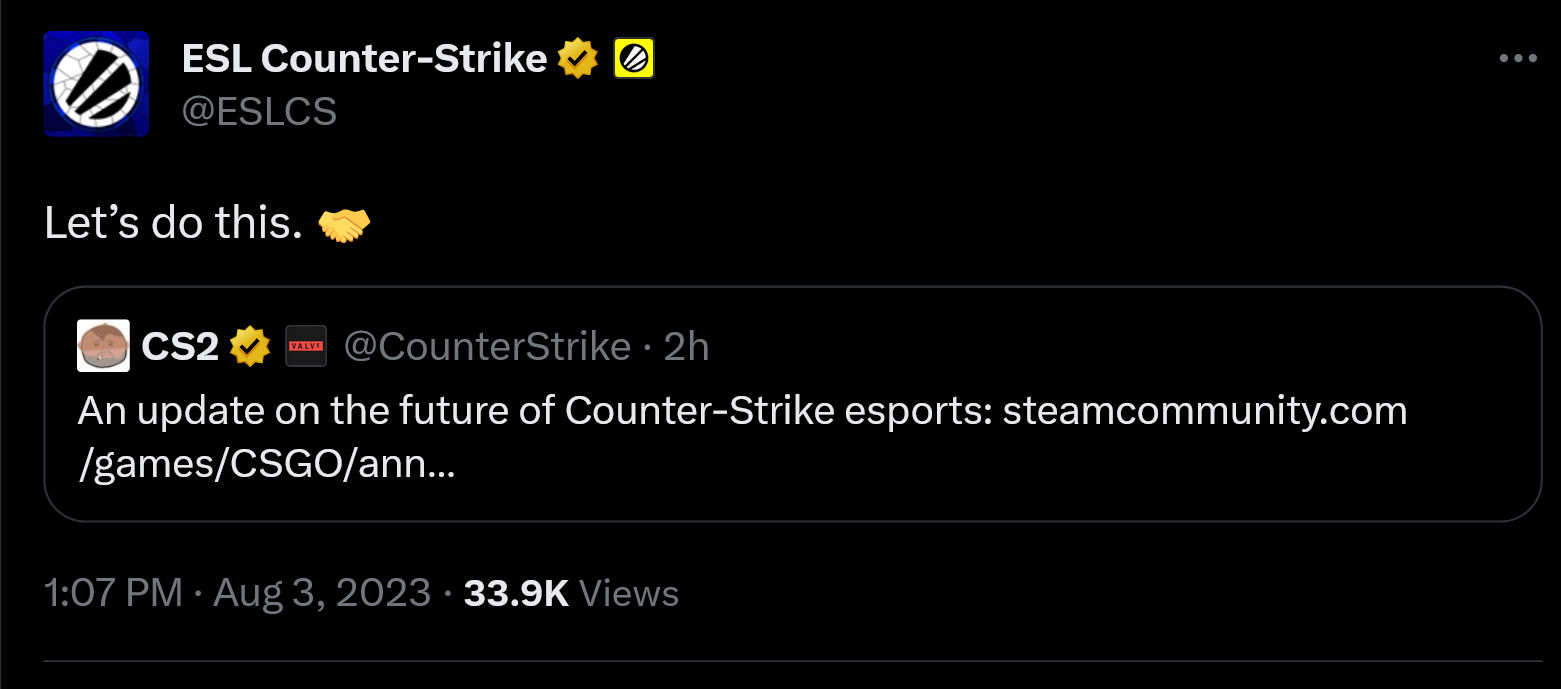After years of taking a hands-off method to the professional CS:GO scene, Valve has very instantly introduced main modifications to the principles governing event organizers that it says will assist make sure that means, and never cash, decide which groups rise to the highest of aggressive occasions.
“Counter-Strike is at its finest when groups compete on a stage taking part in discipline and when means is the one restrict to their success,” Valve wrote. “Over the previous few years, we’ve seen skilled Counter-Strike drift away from that very best. The ecosystem has change into steadily much less open, with entry to the best ranges of competitors more and more gated by enterprise relationships.”
A superb instance of that is the ESL Professional League’s “Louvre Settlement,” which allows “a choose group of elite groups to take part within the Professional League on an ongoing foundation.” These groups share within the revenues earned by ESL and are given everlasting slots within the league each season, and the one approach they’ll lose that slot is by ending final of their group in three out of 4 seasons, at which level their place within the slot “shall be topic to evaluation.” A type of relegation not unfamiliar with European soccer followers, in different phrases, however with monetary entanglements.
An apparent spinoff impact of this deal is that it is a lot tougher for up-and-coming groups to earn a spot in top-tier tournaments, as a result of solely a small variety of leftover slots are open to them. Valve’s new rule modifications are aimed instantly at altering that scenario by forbidding enterprise partnerships between organizers and groups—particulars are nonetheless being finalized, however these are “the broad strokes”:
- Event organizers will now not have distinctive enterprise relationships or different conflicts of curiosity with groups that take part of their occasions.
- Invites to all tournaments will use our rating system, or in any other case be decided by open qualifiers.
- Any compensation for collaborating groups—prize pool or in any other case—will likely be made public and will likely be pushed by goal standards that may be inspected by the neighborhood.
Primarily, preparations just like the Louvre Settlement will likely be outlawed: As an alternative, all event seeding will likely be decided solely by efficiency. I would not anticipate the change to make a direct distinction within the lineups we see at main aggressive occasions—prime professional groups are usually going to be on the prime of the heap with or and not using a qualifying bye—however it does improve the chances of newcomers making their strategy to the large stage.
“There will likely be some tough edges to the transition, however we’re dedicated to the long-term well being of Counter-Strike as a sport and are wanting ahead to its vibrant and open future,” Valve stated.
These modifications will not take impact instantly: Valve stated that as a result of some tournaments have already got long-term commitments with professional groups in place, and so the brand new guidelines will not take impact till 2025. Maybe not coincidentally, that is when the present ESL Professional League Louvre Settlement is because of expire.
ESL’s touch upon the announcement? “Let’s do this,” adopted by a handshake emoji on Twitter.


